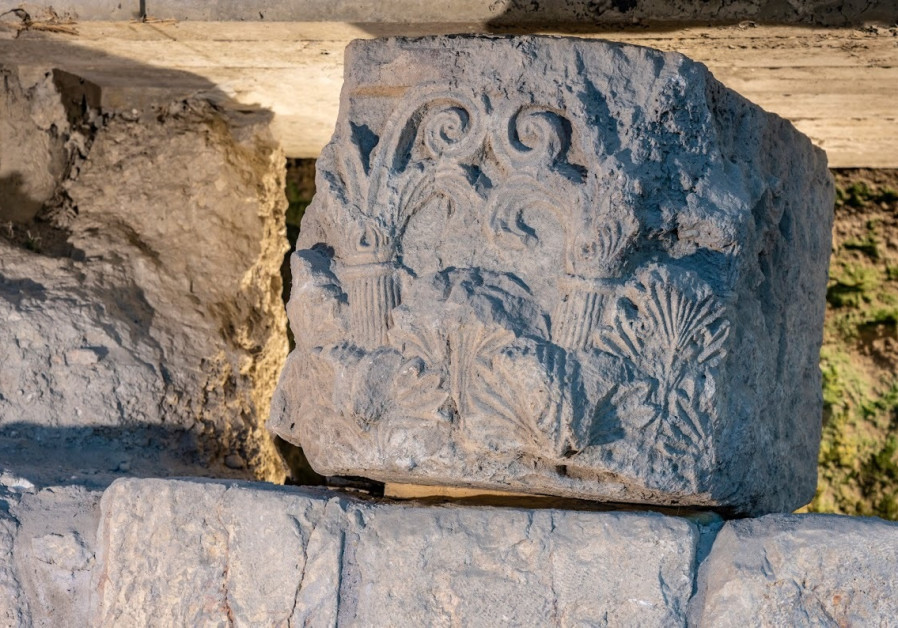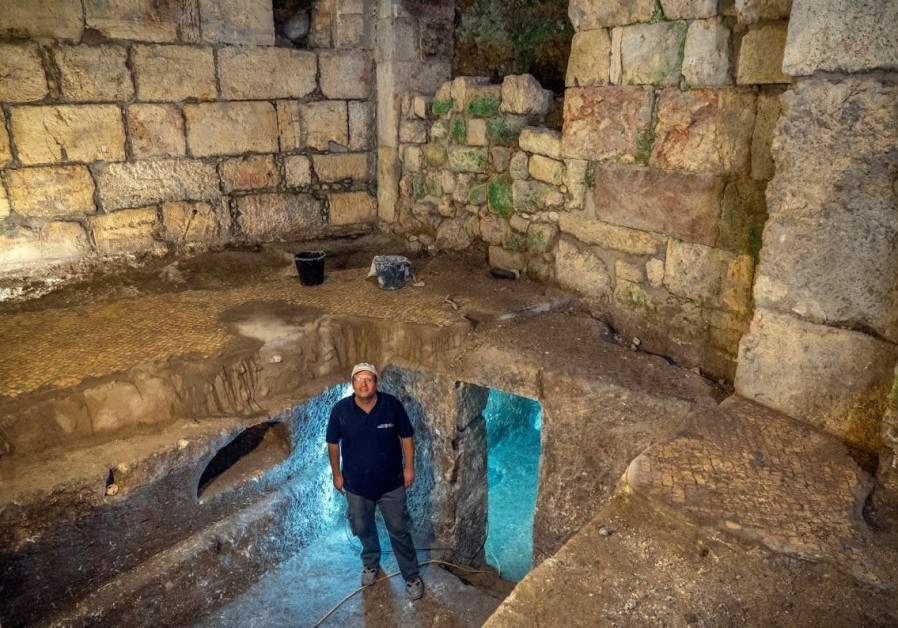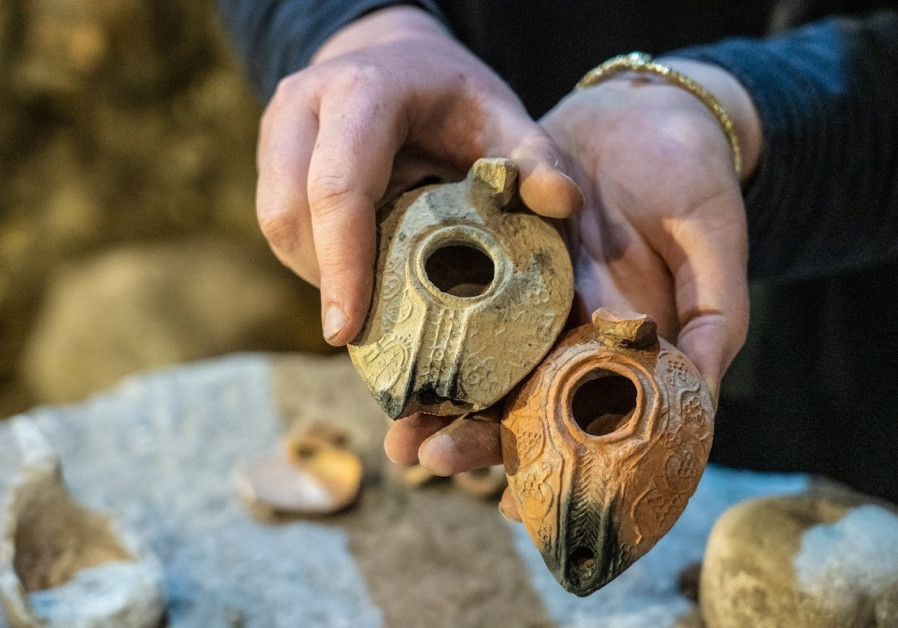The structure was sealed later in the Byzantine period under the floors of a large building about 1,400 years ago and was left untouched for centuries.
ROSSELLA TERCATIN
A unique system of underground rooms dating back to 2000 years ago were discovered by a group of archaeologists just adjacent to the Western Wall in the Old City of Jerusalem, under the lobby of the Western Wall tunnels in the “Beit Straus” complex.
The rare discovery sheds light on Jewish life in the holy city ahead of the destruction of the Second Temple, as explained in a joint announcement by the Israel Antiquities Authority and the Western Wall Heritage Foundation ahead of Jerusalem Day.
The complex features two rooms and an open courtyard and contained several every-day objects. The researchers suggested several possible purposes for the spaces, from food storage to residential place.

The structure was sealed later in the Byzantine period under the floors of a large building about 1,400 years ago and was left untouched for centuries.
“This is a unique finding,” said Dr. Barak Monnickendam-Givon and Tehila Sadiel, directors of the excavation on behalf of the Israel Antiquities Authority, according to a press release. “This is the first time a subterranean system has been uncovered adjacent to the Western Wall. You must understand that 2,000 years ago in Jerusalem, like today, it was customary to build out of stone. The question is, why were such efforts and resources invested in hewing rooms underground in the hard bedrock?”

“The rich array of findings discovered in this excavation shed light on the daily life of the residents of the ancient city. Among other things, we found clay cooking vessels, cores of oil lamps used for light, a stone mug unique to Second Temple Period Jewish sites, and a fragment of a qalal – a large stone basin used to hold water, thought to be linked to Jewish practices of ritual purity,” they added.
“I am excited, on the eve of Jerusalem Day, to reveal to the Jewish nation a new treasure trove of impressive and fascinating findings that shed light on life in Jerusalem throughout the generations in general, and on the eve of the destruction in particular,” commented Mordechai (Suli) Eliav, Director of the Western Wall Heritage Foundation. “This finding epitomizes the deep connection of Jews with Jerusalem, their capital. Even when there were physical limitations, prayer at the foot of the remnant of our Temple never ceased, and this is tangible evidence of this.”

Content retrieved from: https://www.jpost.com/Israel-News/Archaeologists-discover-2000-year-old-unique-complex-by-the-Western-Wall-628537.